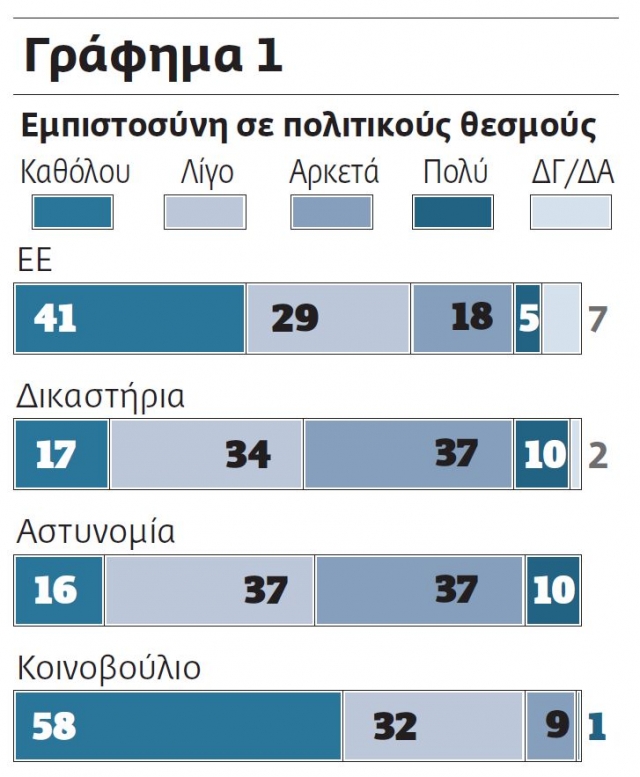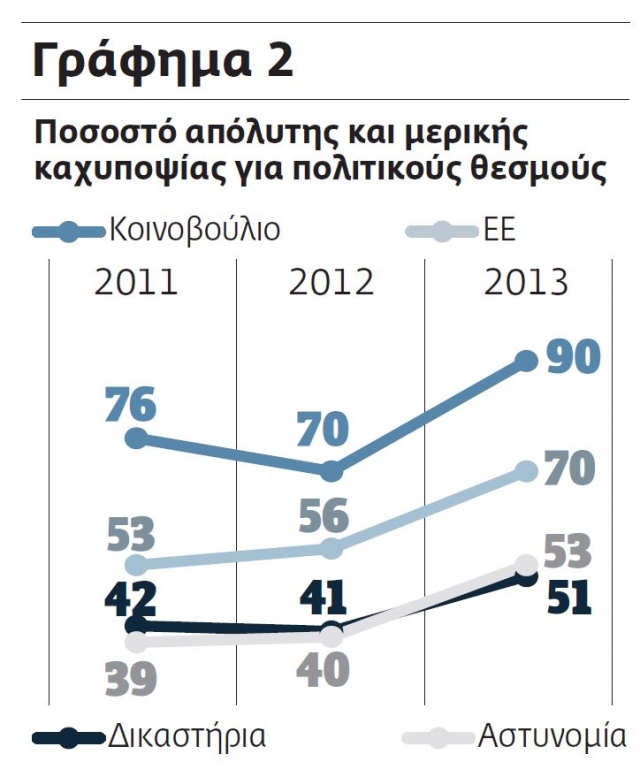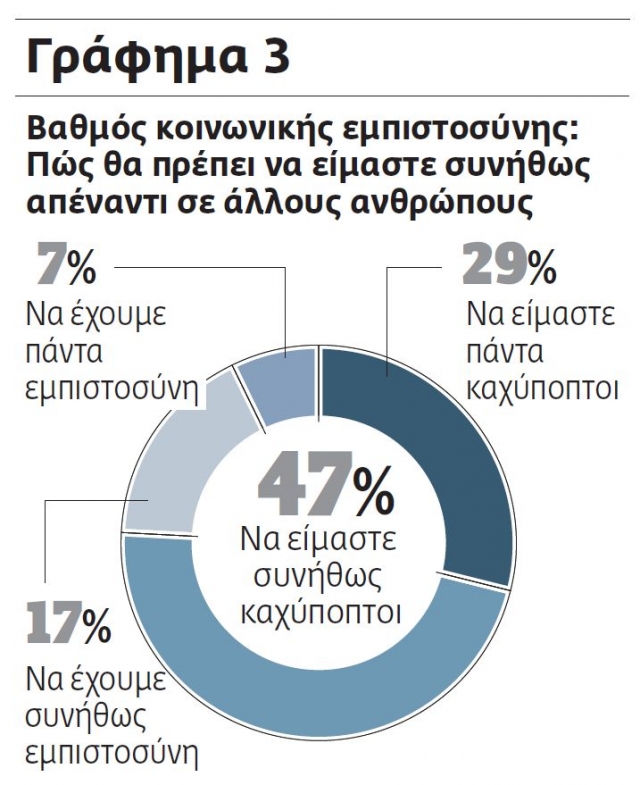Picture www.tovima.gr
The majority of respondents recognised that corruption is prevalent at all levels of government officials and agencies, but the highest level includes MPs and local leaders. It is also worth noting the fact that this image of the level of corruption worsened in the period 2009-2013.
A vast majority of respondents, i.e. 80%, believe that activities of the political power against corruption are ineffectual and declare that neither the number of arrested corrupt officials is enough, nor do the penalties that have been imposed on them correspond to the seriousness of their crimes.
This is the main conclusion of the study of the University of Macedonia, through which scientists are trying to examine the issue of corruption at the level of public administration and politicians, as well as the means of combating it.
The main "suspects" of corruption are lawmakers, tax officials and city mayors, and this chart is clearly affected by trials of politicians such as former Prime Minister Akis Tsochatzopoulos or Vassilis Papageorgopoulos, who was sentenced to life in prison.
The researchers were surprised when they found that the negative view of the role of the political power in the fight against corruption expanded in 2013 probably as a result of "the rhetoric in terms of the fight against corruption."
Inefficiencies or unwillingness of the political power was determined as the main reason for the flourishing of corruption in Greece (about 80-85% of the public opinion), which is expressed in the imposition of lighter penalties or maintaining of opacity in public spending. Part of the blame belongs to civil servants themselves (according to 60% - 65%), the wrong selection of whom has led to improper performance of their duties or exploitation of legislation for their own benefits in their dealings with citizens.
A degree of social and political trust

According to researchers, corruption has always been associated with political trust. One of the direct consequences of the increased corruption both of politicians and the country is the loss of trust in political institutions. The survey reflects the political confidence in Greece. Figure 1 reveals the large increase in people’s suspicion in terms of parliament, in which opinions on political parties are woven, as well as the increase of distrust of European institutions. This is an example of the increase of anti-Europeanism of the Greek public opinion during the crisis. Both indicators have significantly worsened compared to the research of the Institute for the Study of Public Opinion and Market of 2011 and 2012 (Chart 2). The percentage of public opinion, reflecting low or zero confidence in parliament reached 90% in 2013 compared to 70% - 75% over the previous two years. The corresponding percentage in the EU reached 70% in 2013 compared to 58% in 2012 and 53% in 2011.

Politicians, who are struggling with the economic crisis, have been losing the fight for political trust in the last 2 years. This loss is not universal - the confidence level remains high among certain social groups. Parliament enjoys a slightly higher percentage of trust in the age category of 45 and the EU gets slightly higher confidence in the age groups under 45, as well as civil servants. Differences in levels of confidence were reflected in the elections in 2012. Zero or low confidence in parliament and the EU was associated with votes for SYRIZA and other parties that oppose the memorandum. Higher trust in both institutions, especially the EU, was associated with votes for New Democracy and PASOK.
Distrust in institutions seems to be also moving towards central political institutions such as the police and courts which had a high rate of confidence in the past (Chart 2).

Figure 3 shows a high level of suspicion of the social environment of the average citizen. The percentage of those who think that we should always or often be suspicious of most people exceeds 76% of the sample, while in 2011 it was 69%. Public confidence does not seem to be directly related to the political credibility, since distrust in political institutions is equally high in the whole sample, regardless of the level of public confidence of respondents.
The study describes impressions of the Greek public opinion regarding those categories of civil servants, in which corruption is most widespread. These responses cannot be used as evidence for the existence of corruption in these sectors, but as evidence of impressions of the public opinion. The highest percentage of widespread corruption is among MPs (89%), followed by tax officers (82%) and city mayors (81%) (Table 1). Rates are high for all categories of employees.
Table 1